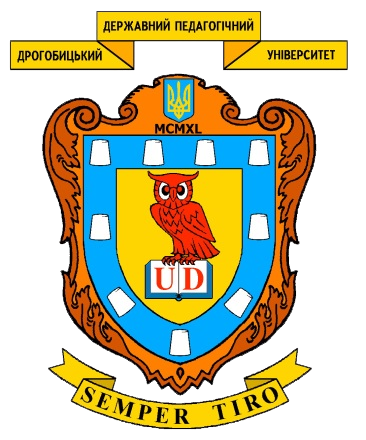ОСОБЛИВОСТІ ФОРМУВАННЯ ЕТНОКУЛЬТУРНОЇ ТА ГРОМАДЯНСЬКОЇ ІДЕНТИЧНОСТІ В ОСВІТНЬОМУ СЕРЕДОВИЩІ
Ключові слова:
етнічна ідентичність, соціокультурна модернізація, етнокультура, традиції, поліетнічність, національна освіта.Анотація
У статті наголошується на необхідності відновлення панорамного культурно-історичного погляду на освіту як на особливий соціальний інститут трансляції і примноження національних цінностей і традицій у комплексному процесі виховання, навчання та розвитку особистості людини. Набуття етнічності не протиставляється глобальним культурним процесам, а, навпаки, сприяє інтеграції кращих традицій із сучасними реаліями, що допомагає зберегти духовне здоров’я людини та етнос.
Посилання
Асмолов А.Г. Российская школа и новые информационные технологии: взгляд в следующее десятилетие / А.Г. Асмолов, А.Л. Семенов, А.Ю. Уваров. – М. : Некс Принт, 2010. – 84 с.
Водолажская Т.В. Гражданская идентичность / Т.В. Водолажская // Социология : энциклопедия / сост. А.А. Грицанов, В.Л. Абушенко и др. – Мн. : Книжный Дом, 2003. – С. 349 – 350.
Выготский Л.С. Психология развития ребенка / Л.С. Выготский. – М. : Смысл, 2003. – С. 312.
Гражданские, этнические и религиозные идентичности в современной России / под ред. Л.М. Дробижевой. – М. : Изд-во Института социологии РАН, 2006. – 327 с.
Донцов А.И. Язык как фактор этнической идентичности / А.И. Донцов, Т.Г. Стефаненко, Ж.Т. Уталиет // Вопросы психологии. – 1997. – № 4. – С. 75 – 86.
Дробижева Л.М. Этничность в социально-политическом пространстве / Л.М. Дробижева. – М. : Новый хронограф, 2013. – 336 с. 7. Григорьев Д.С. Факторы социоэкономической адаптации мигрантов / Д.С. Григорьев // Теоретические проблемы этнической и кросс-культурной психологии / под общ. ред. : В.В. Гриценко. – Смоленск : Смоленский гуманитарный университет, 2014. – С. 70 – 73.
Солдатова Г.У. Этническая идентичность / Г.У. Солдатова // Психология самосознания / под ред. В.А. Ядова. – Самара : Изд. дом «Бахрус», 2000. – С. 656 – 667.
Шикова Р.Ю. Идентичность как объект гуманитарных исследований / Р.Ю. Шикова // Культура, искусство, образование на рубеже векав : материалы III Международной научно-практической конференции. Выпуск 4. – Нальчик : Изд-во М. и В. Котляровых, 2009. – С. 16 – 23.
Эриксон Э. Идентичность : юность и кризис / Э. Эриксон. – М. : Прогресс, 2006. – 352 с.
Юшин М. Молодежный парламентаризм и формирование гражданской идентичности / М. Юшин. // Обозреватель. – 2007. – № 7. – С. 26 – 35.








